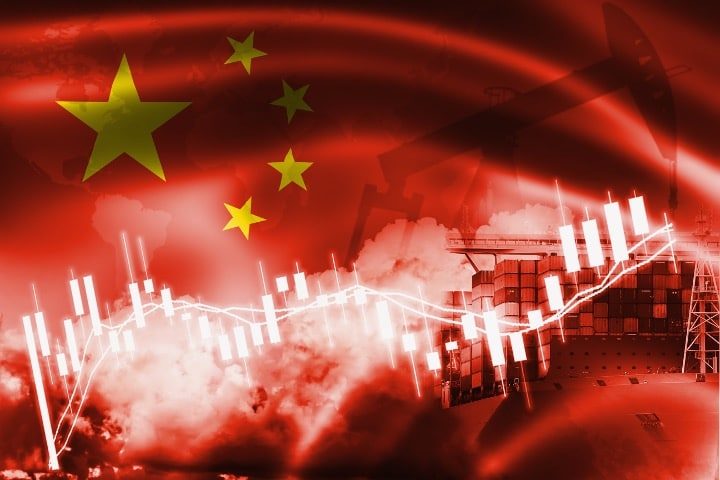
The European Union is expected to implement sanctions against the Chinese economy, according to diplomats cited by the South China Morning Post (SCMP) earlier this month.
The diplomatic sources interviewed by the SCMP stated that EU officials are getting ready to sanction eight key Chinese companies suspected to be related to Russian actions in Ukraine. These accused firms allegedly resold European technology primarily in the form of microchips used by Russian forces in Ukraine.
EU sources said that they anticipated a sanctions package would be unveiled before European foreign ministers convene in Brussels on June 26, despite Beijing having cautioned previously that sanctions were unnecessary and would incite retaliation.
For some time now, European countries have been wrestling with the possibility of an economic decoupling from China, with EU leaders divided over their future relationship with the Asian superpower.
Some officials have said that China is vital for economic prosperity, and that America is pressuring Europe into severing ties with Beijing too quickly.
For instance, the Netherlands’ trade minister, Liesje Schreinemacher, defended her country’s bilateral relationship with China this week in an interview with the Financial Times, stating that a break with China would undermine Europe’s entire green transition.
The Dutch minister urged for discretion regarding any EU plans to completely decouple from China, instead stating that working ties with Beijing were crucial to ensuring the sustainability of the European economy.
Although Schreinemacher had discreetly supported increased scrutiny of Chinese investments, she remained adamant that decreased reliance on China did not imply stopping collaboration and trade completely. She then posited that European nations should have the ultimate say on security matters amid American pressure for Europe to cut off ties with China.
The Dutch minister’s comments came after the Group of Seven (G7) leaders agreed to take a more hard-line position against Chinese economic expansionism recently, with the Netherlands leading a ban on exports of strategically vital semiconductors to China. She confirmed the Dutch government’s plans to rally fellow EU nations to increase her country’s semiconductors restrictions, seen as vital for the development of green technology.
Schreinemacher’s statements were perceived as a mild departure from the Dutch government’s normally adversarial statements and actions to curb China’s influence.
In response to her remarks, the Chinese ambassador to the EU, Fu Cong, tweeted his approval. In a recent interview with the British New Statesman magazine, Fu warned against the notion of an EU-Chinese trade war and seemed to gloss over the potential of Europe ending up as a Chinese economic vassal. While anti-China hawks have stipulated that Beijing has functioned as a clandestine conduit for Russia to obtain Western arms and technology, Fu pointed out that the EU has been hesitant thus far to share information with China over alleged sanctions breaches, highlighting China’s supposed efforts to obstruct the resale of Western military technology to Russia.
China has played an equivocal role throughout the Russo-Ukrainian conflict, with its efforts to broker peace tainted by accusations that it is attempting to cause an EU-American schism with regard to the conflict. Prior to the outbreak of the hostilities in February 2022, Beijing had announced that it enjoyed a “no limits” friendship with the Kremlin, and it recently provoked brickbats from across Europe for a diplomatic faux pas in calling the sovereignty of post-Soviet states in eastern Europe into question.
China’s Ukraine envoy Li Hui has asked Western powers to stop deploying weapons to Ukraine. “China believes that if we really want to put an end to war, to save lives and realize peace, it is important for us to stop sending weapons to the battlefield, or else the tensions will only spiral up,” Li, a former ambassador to Moscow, told reporters. “China’s goal is promoting peace talks and a cessation of hostilities.”
To complicate matters, Beijing has been slammed for trying to pressure smaller European nations to align with its foreign policy objectives, illustrated by the recent boycott of Lithuanian goods over the latter’s recognition of Taiwan.
Brussels is reportedly trying to achieve a tight balance amid an escalating Sino-U.S. trade war. On May 12 this year, during an informal meeting near Stockholm organized by the EU Council’s Swedish presidency, EU foreign ministers agreed on a plan to decrease the bloc’s economic reliance on China. The agreement was to adopt a policy of “de-risking” when it comes to relations with China.
In particular, the plan hopes to attain a balance among the interests and wishes of the EU’s 27 member states, ensuring a distinctive European approach to China while also seeking close ties with Washington.
Based on a report by Euractiv, the EU policy positioned China as a geopolitical rival and economic competitor to Europe, but also as a potential partner on international matters.
EU Commission President Ursula von der Leyen and French President Emmanuel Macron have called for third-way options for Europe, as opposed to complete economic isolation from China, with measures meant to protect the European green economy against Chinese overdependence entailing new regulations on raw materials and the use of Chinese components.
The EU’s foreign policy chief, Josep Borrell, opined that European economic integration with China would have to be recalibrated and toned down, while criticizing China for its role in Russian military operations in Ukraine.
Supporters of continued trade with China contend that Europe would boycott the Chinese economy at its own loss and should be able to forge Sino-EU ties apart from America. On the other hand, opponents of Sino-EU relations quote Beijing’s authoritarian rule and human rights abuses in Hong Kong and other regions such as the Xinjiang region as reasons to not cooperate with China.
Any sanctions package would necessitate a consensus among EU member states. Thus, proposed Chinese sanctions are likely to face roadblocks, as Hungary and Greece have already voiced their protests, stating that such measures would jeopardize the European economy even more than sanctions against Russia.



